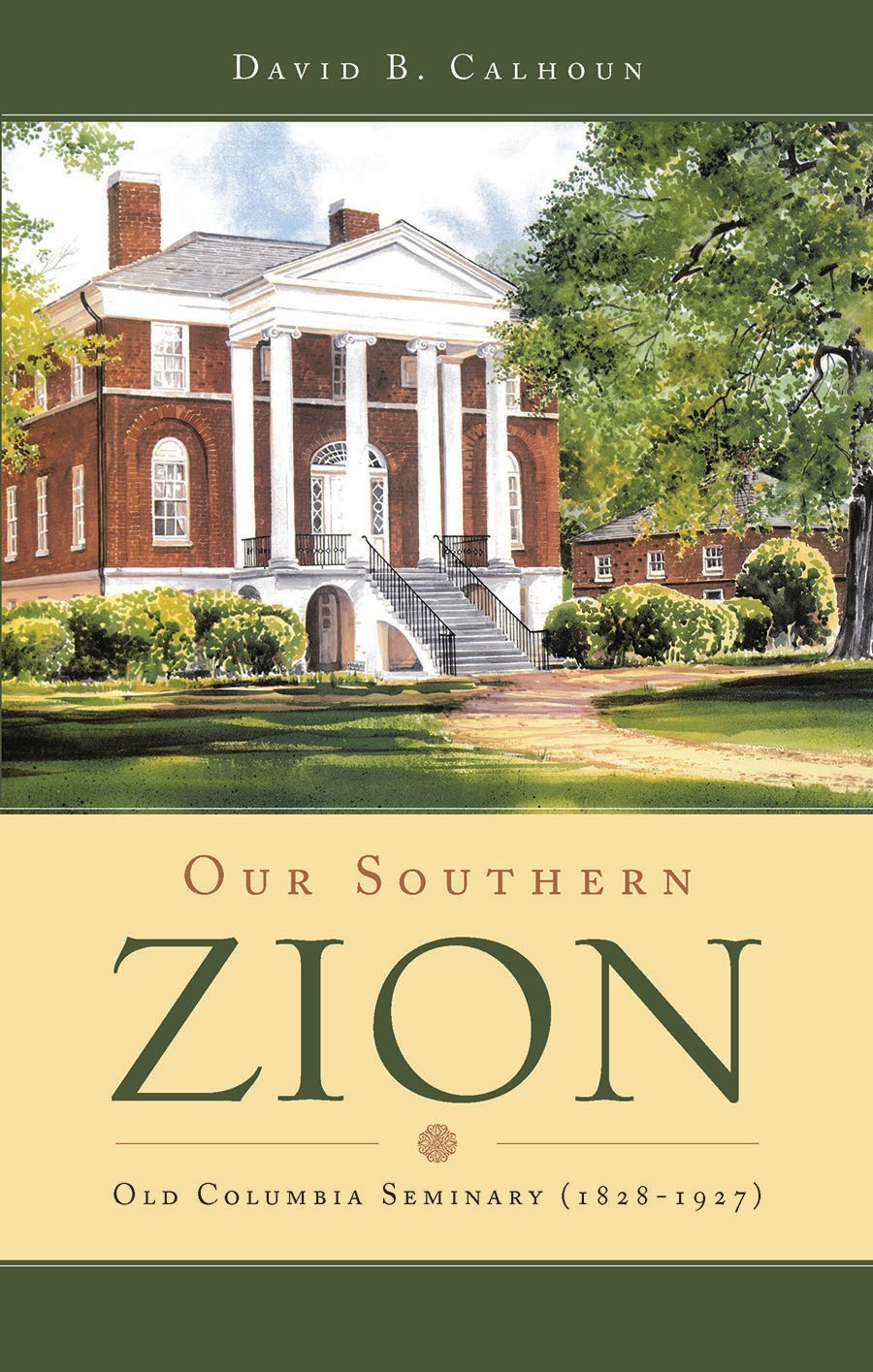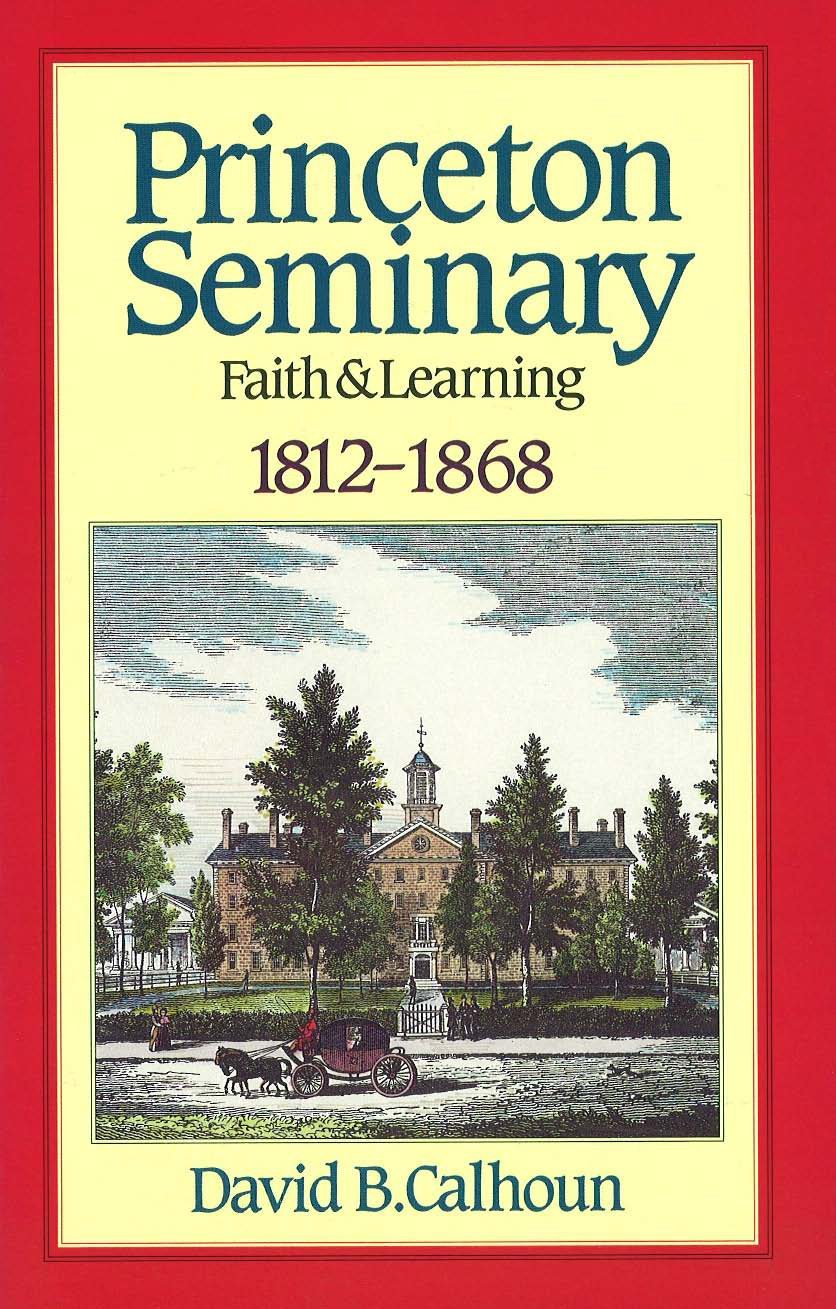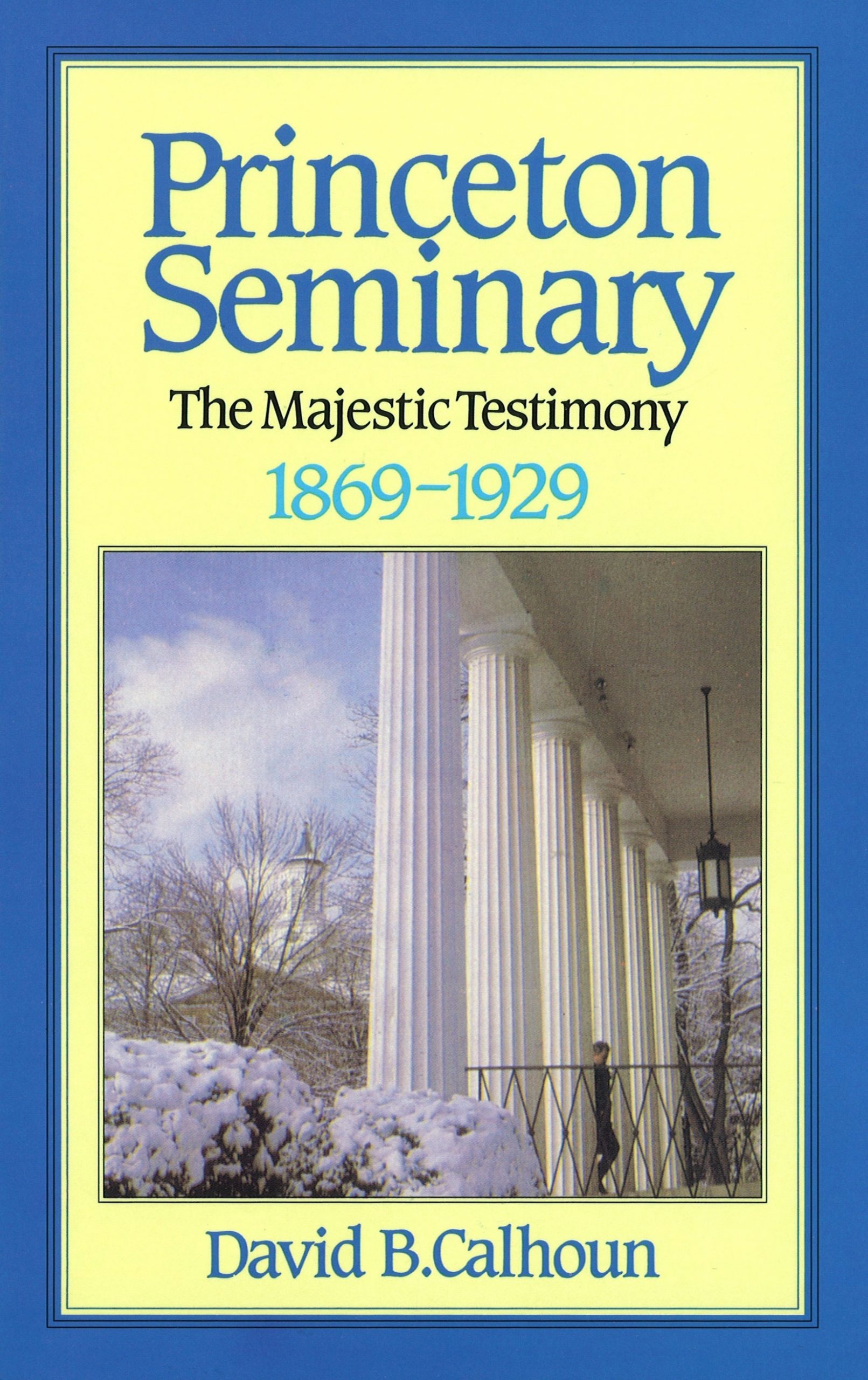‘Our Southern Zion’ – A Review by Kenneth Macleod
A review by Kenneth D. Macleod of David B. Calhoun’s Our Southern Zion: Old Columbia Seminary (1828-1927).1
The author has previously written two highly-interesting volumes on Princeton Theological Seminary, from its inception in 1812 until it was transformed into a more liberal institution in 1929.2,3 He has now turned his attention to a smaller, but still significant, seminary, which for almost all the period described in this book was located in South Carolina. ‘The title, Our Southern Zion,’ the author explains, ‘is an expression used by Presbyterians in the Old South for their church and its institutions, including Columbia Seminary’ (p. xv) – as in: ‘Remember thy congregation . . . this mount Zion’ (Psa. 74:2).
Among the prominent names associated with the Seminary were the theological giants: J. H. Thornwell, B. M. Palmer and J. L. Girardeau; they all have at least one chapter to themselves. Thornwell became professor of theology in the Seminary in 1856. The following year he commented that those who are training students are aiming ‘to prepare a ministry for the whole Church and for a dying world . . . until the whole body of Christ shall be gathered and the bride be adorned to receive her husband at His second coming in glory and majesty and power’. ‘Who is sufficient for this work?’ he asked. And he answered his own question: ‘With profound impression of the truth I say it, Not I! And like Moses, as I buckle on the armor of a graver warfare than I ever waged before, I utter from the heart the prayer of conscious weakness: If thy Spirit go not with me, carry me not up hence’ (p. 103).
It is worth quoting, too, Thornwell’s words after he returned from his mother’s funeral to find that his nine-year-old son also had succumbed to typhoid fever:
Although I have suffered . . . as I hope never to suffer again, yet I can truly say that I was not conscious . . . of rebellion against the providence of God. I could trust Him in the deepest darkness which surrounded me. The gospel which I have long believed, and preached because I believe, was a very present help in time of trouble. I felt its truths, and was strengthened by its grace (p. 104).
The author notes that ‘Thornwell believed that his little son gave evidence that he understood and accepted the gospel’.
One student reported that Thornwell’s ‘lectures on theology were always delivered with the utmost solemnity, reverence and earnestness. They were like sermons from the pulpit, and the students felt their solemnising, worshipful power as they heard him’ (p. 115). Thornwell may have been the ablest and best-known of the Seminary’s professors, but there were others who taught effectively, to the glory of God.
We are told that, from 1876 till he retired in 1895, J L Girardeau ‘was the greatest influence at the Seminary’. Even at the time of his ordination, he declared in a sermon: ‘Looking unto Jesus . . . is the grand secret both of freedom from wrath and holiness of life’ (p. 223). A student expressed his appreciation of how Girardeau helped him ‘by his gift of analysis and of clarifying things by making distinctions’. Girardeau had strong views on the regulative principle, leading him to write the book, Instrumental Music in the Public Worship of the Church. Preaching at his Church’s General Assembly, he declared,
We have the principle tinctured with the blood of our Puritan, Covenanter and Huguenot forefathers – that what is not commanded, either explicitly or implicitly in the Scriptures, is prohibited to the Church, [for] the Scriptures, as the Word of Christ, are the complete and ultimate rule of faith and duty (p. 236).
Probably the most serious event in the early history of the Seminary was the controversy over evolution, which lasted for at least 10 years, from around 1882. James Woodrow, an uncle of the First World War President of the United States, Woodrow Wilson, was Professor of Natural Science in Connection with Revelation, at the Seminary. He argued that the Bible does not say whether God created ‘a finished world of sea and land’, or whether he used ‘nebulous matter which he endowed with properties such that it would pass through successive changes until it reached the condition in which we now see it’ (p. 266) – leaving plenty of room for an evolutionary viewpoint. In the end Woodrow resigned, but the Seminary was seriously weakened by the controversy between, on the one hand, him and his supporters and, on the other hand, those, such as Girardeau, who took a more scriptural view of the matter. Indeed the Seminary had to close in 1886 and, when it re-opened a year later, there were only 14 students.
The professors who moved on with the Seminary to Decatur, Georgia, in 1927, ‘kept alive the old teachings’, we are told, ‘for another 50 years, but gradually the seminary’s interests and emphasis shifted to more modern views’ (p. 365). This is what had happened in Princeton also, but probably more quickly.
In this volume we have an account of the provision that was made, in God’s providence, for the training of young men in an area where, in the nineteenth century in particular, there was a great deal of devotion to scriptural truth. The author may not be able to maintain quite the degree of interest that pervades his earlier work on Princeton Seminary; the main reason is that there seems, in later years, to have been some difficulty in retaining staff in Columbia Seminary, and many professors flit in and out of the later pages of the book.
The training of students for the ministry is a work of great importance. In our generation, liberalism has made further strides towards destroying the church. Accordingly we should pray that the Lord would continue to make provision for the training of the ministry, in all parts of the church, that would be to his glory and consistently in line with revealed truth.
Notes

Our Southern Zion
Old Columbia Seminary (1828-1927)
price $26.10Description
A review by Kenneth D. Macleod of David B. Calhoun’s Our Southern Zion: Old Columbia Seminary (1828-1927).1 The author has previously written two highly-interesting volumes on Princeton Theological Seminary, from its inception in 1812 until it was transformed into a more liberal institution in 1929.2,3 He has now turned his attention to a smaller, but […]

Princeton Seminary
Volume 1: Faith & Learning, 1812 - 1868
price $28.80Description
A review by Kenneth D. Macleod of David B. Calhoun’s Our Southern Zion: Old Columbia Seminary (1828-1927).1 The author has previously written two highly-interesting volumes on Princeton Theological Seminary, from its inception in 1812 until it was transformed into a more liberal institution in 1929.2,3 He has now turned his attention to a smaller, but […]

Princeton Seminary
Volume 2: The Majestic Testimony, 1869 - 1929
price $28.80Description
A review by Kenneth D. Macleod of David B. Calhoun’s Our Southern Zion: Old Columbia Seminary (1828-1927).1 The author has previously written two highly-interesting volumes on Princeton Theological Seminary, from its inception in 1812 until it was transformed into a more liberal institution in 1929.2,3 He has now turned his attention to a smaller, but […]
Kenneth D. Macleod is pastor of the Free Presbyterian Church in Leverburgh on the Isle of Harris. He is the editor of The Free Presbyterian Magazine, from the April 2014 issue of which the above review has been taken with permission.
Latest Articles
Finished!: A Message for Easter March 28, 2024
Think about someone being selected and sent to do an especially difficult job. Some major crisis has arisen, or some massive problem needs to be tackled, and it requires the knowledge, the experience, the skill-set, the leadership that they so remarkably possess. It was like that with Jesus. Entrusted to him by God the Father […]
Every Christian a Publisher! February 27, 2024
The following article appeared in Issue 291 of the Banner Magazine, dated December 1987. ‘The Lord gave the word; great was the company of those that published it’ (Psalm 68.11) THE NEED FOR TRUTH I would like to speak to you today about the importance of the use of literature in the church, for evangelism, […]
